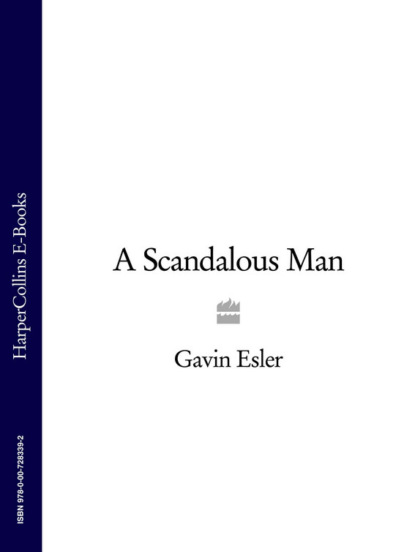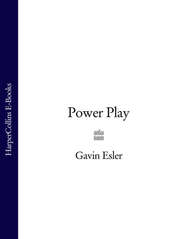По всем вопросам обращайтесь на: info@litportal.ru
(©) 2003-2024.
✖
A Scandalous Man
Автор
Год написания книги
2019
Настройки чтения
Размер шрифта
Высота строк
Поля
Harry thought he saw steam rising from the pool of liquid by his feet, though he might have imagined it. He burst into tears, not because of what he had done, not because his crotch and trousers were wet and uncomfortable, sticking to his legs, not even because his sister was joyous in his humiliation, but at the thought that the bright blue eyes-in-the-letterbox called Stephen Lovelace might have seen him do it, and that he would write about it in his newspaper, the small one, the one the Lady called a comic for grown-ups. And he knew something else. He knew he would remember those eyes. Forever.
London, Spring 2005 (#u60bab662-c2d4-5ae2-9072-fb5008b43070)
As soon as Amanda rang off, Harry Burnett called the Metropolitan Police on the number his sister had given him. To his surprise, someone answered almost immediately.
‘Hello, my name is Harry Burnett and …’
‘You are Robin Burnett’s son, Harry Burnett?’ the voice interrupted.
‘Yes.’
The last time Harry had called the Metropolitan Police was six months before. He had been mugged in a park near Fulham Broadway. The muggers had stolen his iPOD and run off towards the Peabody Estate, a housing estate so rough it had become almost a no-go area. That time, the police telephone rang for forty-five minutes without any police officer managing to answer it. That time, Harry had given up. This time was different. Instant access. Suddenly, he realized, he was Somebody. Or the Son of Somebody.
‘Yes. I’m Harry Burnett,’ he confirmed. ‘My sister said you were interested in meeting me at my father’s flat in Hampstead?’
The detective said yes, he was indeed very interested to meet Robin Burnett’s son at his father’s flat in Hampstead.
‘Can I check the address with you?’ Harry said.
‘Why?’
‘Because I’ve never been there. Until a few moments ago I didn’t even know my father owned a flat in London.’
‘Oh?’ The officer sounded genuinely puzzled. ‘And – um – why is that?’
‘Because … because I have not talked to my father in years.’
‘Oh.’
The policeman confirmed the address and they fixed a time. Harry checked his watch and decided to head to the flat immediately. He walked towards Fulham Broadway Underground Station marvelling at how his father’s name opened doors for him, and how even the affable TV reporter had known about his father’s most precious political gift, right from the very beginning, of perfect timing.
The beginning was 1979. Harry thought of 1979 as Year Zero. A lot of things happened in Year Zero, including Harry, who – in tribute to his father’s impeccable timing – was born on the same day that Mrs Thatcher was elected Prime Minister.
‘The Lady will just love it,’ Robin Burnett told Harry’s mother, Elizabeth, when he suggested they schedule her Caesarean section for polling day. ‘The Lady just loves the idea of traditional families. The more babies the better.’
‘Oh, good,’ Elizabeth responded. ‘Obviously I am pleased to go through with surgeon-assisted childbirth on a day that best suits the future Prime Minister.’
Robin Burnett did not respond to sarcasm. Perhaps he did not even hear it. Besides, he and the Lady were busy with other matters. She celebrated her historic election victory, that May of 1979, and immediately offered Harry’s father a place in her government. Harry, meanwhile, was throwing up in hospital. It took the doctors twenty days of head-scratching to figure out what was wrong and then to operate and put it right. It meant, coincidentally, that when nowadays the TV networks show library pictures of Mrs Thatcher’s election victory they are also showing TV footage of the day of Harry’s birth. He had seen it so often, it was as if he had witnessed it first hand.
In the TV library pictures from May 1979 the Lady is always radiant, twin-sets, pearls, handbags, surrounded by pale-faced, earnest-looking men wearing bad spectacles. Flag-waving crowds cheer the first woman Prime Minister of the United Kingdom of Great Britain and Northern Ireland.
Hurrah! Hurrah!
She smiles quizzically, cocking her head to the side, trying not to look too pleased with herself, but Harry can tell that she is very, very pleased with herself. She has a helmet of blonde hair which manages to be stiff and wavy at the same time. Then she quotes the words of St Francis of Assisi, as if speaking to a class of particularly slow-witted children.
‘Where there is hatred, let me sow love. Where there isdoubt, faith. Where there is despair, hope. Where there isdarkness, light. Where there is sadness, joy.’
Every time he saw the TV clips, Harry thought: that was Mrs Thatcher, wasn’t it? Love. Faith. Hope. Light. Oh, yes, and joy. Mustn’t forget the joy.
Rejoice. Rejoice.
As they went through the divorce, Harry’s mother told him that during those first twenty days of his life, Robin Burnett visited the hospital just three times, and never for more than fifteen minutes. She kept score. She said she ‘counted him in, and counted him out.’
‘The hospital was the best place for you,’ Robin Burnett defended himself.
Harry was by this time eight years old. The scandal had broken and their father sat him on the sofa in the large drawing room of their house in Pimlico. Amanda was by his side. She must have been ten. It was a time for explanations.
‘Besides, I had other duties.’
Harry was bewildered.
‘What other duties?’
‘Well,’ Robin Burnett nodded sagely, ‘duties to the country as a whole.’
It sounded big stuff to an eight year old. Other duties. Tothe country as a whole. Fifty-seven million British people were depending on his father, not counting Harry, Amanda and their mother.
‘Harry, you must understand that on the day you were born I absolutely had to be in Gloucester.’ Robin Burnett explained that he had been elected that day as a Gloucestershire MP as part of the 1979 Thatcher landslide. ‘And then I had to go to Number Ten because the Lady summoned me to brief her. And that meant I must …’
When Harry thought back, he remembered that his father ‘must’ go off to Washington or Bonn or Paris or Brussels. He always ‘had to’ do his paperwork, what he called ‘my boxes’. Harry recalled some words from Schiller: ‘Kein Mann mussmuessen,’ which translated literally as ‘no man must “must”.’ Nobody has to do anything. Except his father.
‘Why were you not there in the hospital when I was born?’ Harry demanded. ‘When I was sick?’
‘These were different times,’ Robin Burnett explained. ‘Men left childbirth to women. The best you could do was stand outside and pace up and down and smoke cigarettes. It was a different world.’
Robin Burnett made 1979 sound like some far off period in medieval history. Perhaps, Harry had come to realize, it was. In 1979, Year Zero of our current predicament, people worried about things as peculiar to us now as the Black Death or the Turks at the Gates of Vienna. In 1979, the Cold War would last forever. The Soviet Union would invade Germany. There were nervous TV dramas about a nuclear war followed by a nuclear winter. Nobody had heard of Global Warming. The Big Scare was precisely the opposite, a nuclear Ice Age. In February 1979, the Shah of Iran, Reza Pahlavi, was overthrown. Militant Islamists hijacked the Iranian Revolution and seized the American embassy, holding diplomats and their families hostage for more than a year. Soviet troops invaded Afghanistan. British trades unions were out of control. Inflation. Unemployment. Strikes.
This strange alignment of the planets brought us Mrs Thatcher, Ronald Reagan, the collapse of the Soviet Union, the end of Soviet Communism, the rise of the Taleban and al Qaeda, and – eventually – the whole mess we’re in now, everything from 9/11 and the London and Bali bombings to the so-called War on Terror and several wars with Iraq. And of course, the Masters of Our Current Predicament, George W. Bush and Tony Blair.
Harry sat down in the Underground train on his way to Hampstead. Suddenly half a dozen teenagers jumped in behind him. They were wearing hoodies or baseball caps and eating foul-smelling hamburgers and chips, shouting at each other with their mouths open, sitting with their feet in unlaced trainers on the seats. One of them had a boom-box and cranked it up. Hip-hop. Another scratched something on the glass of the train window with a bottle opener. Harry looked away. It was the Art of London Zen. What was happening was not really happening. If you did not look at it, it did not exist. A couple of stops later, the teenagers finished eating their burgers and chips. They rolled the wrappers into balls and threw them at each other, then headed and kicked them around the floor. They wiped the grease from their hands on the seats. Two of them started doing pull-ups on the commuter loops hanging from the roof of the train. Harry and the other passengers stared out the window at the Tube blackness. He wanted to scream at the teenagers to sit down. For god’s sake, behave. But he said nothing. There had been half a dozen stabbings on the Northern Line since the beginning of the year. One of the victims had been cut open from his ear to his chest and then photographed on the attackers’ mobile phones as he lay bleeding on the floor.
‘Happy Stabbing, yeah?’ one of the attackers had yelled at the other people in the carriage, then they started slapping people and photographing that too.
Harry stepped out quickly at Hampstead, leaving the gang of teenagers in the carriage behind him. Relieved. Feral beasts. There was a newsagent’s stall with two billboards. One said: ‘Iraq War “In Good Faith” – Blair.’ The other: ‘ElectionCalled for May 5.’
Harry asked the newsagent for directions to his father’s apartment block.
‘Hampstead Tower Mansions?’
Blank look.
‘Heath View Road? Do you know it?’
The man was fat and balding, with a comb-over of greasy brown hair. He grunted and continued sorting his papers. The grunt could have been a yes, or a no, or a fuck-you.
‘You know it?’ Harry tried again. This time the grunt was definitely a fuck-you.
‘You wanna know somefink get one a’these.’






